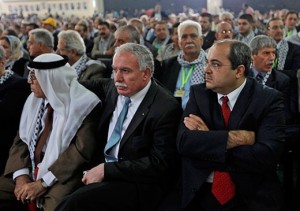In an important step to bridge social gaps in the country, the government of Israel has reached out to its Arab citizens by crafting a comprehensive budget which would include Arabs in the shared progress of the country. After two unsuccessful attempts to get a cabinet majority, the government on December 30, 2015 approved an ambitious programme worth 15 billion shekel (USD 3.85 billion). It will focus on the social and employment development of Israel’s Arab community, which is only 20 per cent of the population of Israel.
The five-year plan, which was unanimously approved by the ministers, will be instrumental in upholding the integrity of Israel. The plan strives to address weaknesses in everything every area from housing to health, but with only minor changes. However, mixed Arab-Jewish cities like Jerusalem, which had threatened to destroy the entire programme, were not included in it.
Israel’s Minister for Social Equality Gila Gamliel, also one of the plan’s supporters, called it “an important and historic step” towards closing the social gaps between Israeli Arabs and Jews. “The programme that was approved is very comprehensive and relates to all areas that touch on local authorities and Israel’s Arab citizens,” she said. “For the first time, the government of Israel is changing the mechanism for funding ministries so that Israeli Arabs will get their fair share of the state budget,” she added.
Earlier, there had been a deadlock in the cabinet, as Likud ministers led by Ofir Akunis and Miri Regev demanded that mixed cities also get a share of the extra spending. This demand had led to heated exchanges between the ministers.
The main condition of the plan was that the local authorities entitled to extra money and other assistance had to be at least 80 percent Arab. Many analysts and economists had warned that Israel’s economic health will be at risk in the long-run if it does not work towards improving the economic standing of its Arab citizens, which is one of the country’s fastest-growing populations.
Impact on Israel-Palestine relations
The onus has been on Israel to implement the government’s plan originally proposed in 2010 to eliminate discrimination in the allocation of state resources to the Arab community, particularly concerning education through legislative and budgetary means. Looking at that proposal, it does seem that Israel has taken a step in the right direction. However, the basic distrust of the Arab minority continues to be deeply entrenched in Israel. Hardliners in the government still dominate Israel’s decision making and the recent decision by the government to ban a novel on Arab-Jewish romance in schools, citing a threat to Jewish identity is one of the few examples. The Arab minority in Israel is looking to fill up the political void with the crisis of the Palestinian national movement which is divided, adrift and in search of a new strategy.
The security restrictions that constrain Arab employment in the high-tech sector have been a hurdle in bridging the trust deficit between the majority Jews and minority Arabs. The access to startup funding, especially from key private sources, has often been the biggest challenge for the Arab minority.
Until the trust deficit is bridged between the majority and minority, it is unlikely that the Arab minority would play a major role in helping reach a solution between Israelis and Palestinians. The outreach by Israel government is the first step towards more inclusion, but the larger issues still continue to divide the two sides.
Author Profile
- India Writes Network (www.indiawrites.org) is an emerging think tank and a media-publishing company focused on international affairs & the India Story. Centre for Global India Insights is the research arm of India Writes Network. To subscribe to India and the World, write to editor@indiawrites.org. A venture of TGII Media Private Limited, a leading media, publishing and consultancy company, IWN has carved a niche for balanced and exhaustive reporting and analysis of international affairs. Eminent personalities, politicians, diplomats, authors, strategy gurus and news-makers have contributed to India Writes Network, as also “India and the World,” a magazine focused on global affairs.
Latest entries
 DiplomacyJanuary 5, 2026India walks diplomatic tightrope over US operation in Venezuela
DiplomacyJanuary 5, 2026India walks diplomatic tightrope over US operation in Venezuela India and the WorldNovember 26, 2025G20@20: Africa’s Moment – The Once and Future World Order
India and the WorldNovember 26, 2025G20@20: Africa’s Moment – The Once and Future World Order DiplomacyOctober 4, 2025UNGA Resolution 2758 Must Not Be Distorted, One-China Principle Brooks No Challenge
DiplomacyOctober 4, 2025UNGA Resolution 2758 Must Not Be Distorted, One-China Principle Brooks No Challenge India and the WorldJuly 26, 2025MPs, diplomats laud Operation Sindoor, call for national unity to combat Pakistan-sponsored terror
India and the WorldJuly 26, 2025MPs, diplomats laud Operation Sindoor, call for national unity to combat Pakistan-sponsored terror








